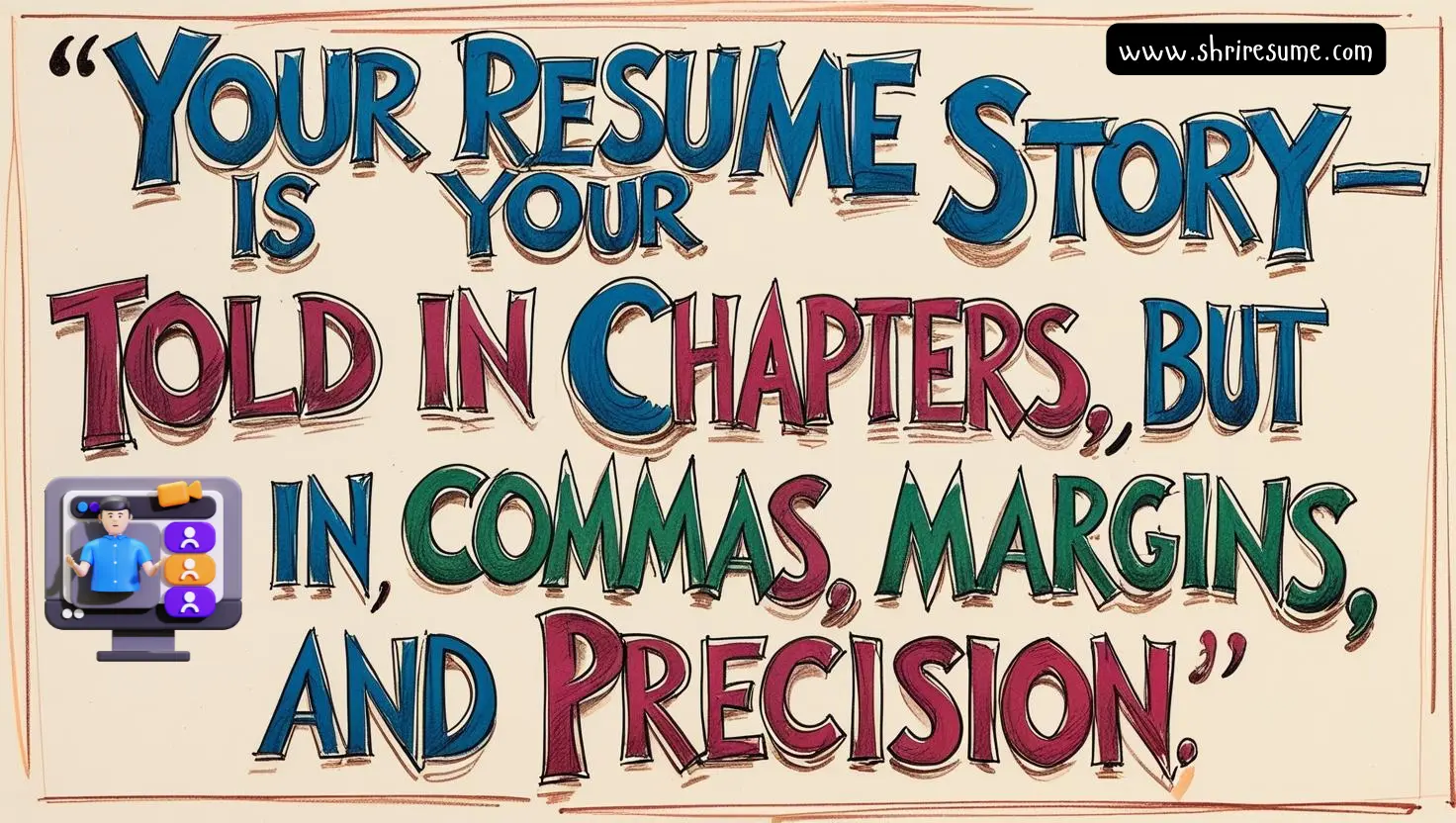How to Showcase Your Detail-Oriented Skill on Your Resume Effectively
Introduction
In today’s competitive job market, it’s not enough to just list your past job roles. Recruiters are looking for candidates who bring measurable value to their organization. One key soft skill that hiring managers consistently seek is attention to detail.
This blog post will explain what it means to be detail-oriented, why it’s important to recruiters, and—most importantly—how to highlight this skill effectively on your resume and during interviews. If you’re wondering how to show attention to detail on your resume, you’re in the right place.

What Does It Mean to Be Detail-Oriented?
A detail-oriented person pays close attention to the little things and works to ensure accuracy and quality in every task. They are the first to spot mistakes, fix errors, and follow procedures with precision. Demonstrating attention to detail is an essential component of many professional soft skills for resumes.
Examples of detail-oriented roles include:
- Quality assurance specialists
- Architects
- Editors and proofreaders
- Medical professionals
- Programmers
- Pilots
Why Recruiters Value Detail-Oriented Candidates
Hiring managers are under pressure to find candidates who won’t need micromanagement and who can independently deliver high-quality results. Here’s why being detail-oriented matters:
- Saves time for managers and clients
- Increases accuracy in reporting and documentation
- Ensures projects meet deadlines and quality standards
- Builds trust within teams and with customers
- Reduces the need for revisions or rework
Habits of a Detail-Oriented Person
To become more detail-oriented and boost your resume skills for detail-oriented roles, develop these habits:
🧹 Maintain an Organized Workspace
A tidy environment improves focus. Organize your desk and computer folders for easy access to critical information.
🗓️ Plan Your Work Schedule
 Use planners or digital tools like Google Calendar or Notion to structure your day and avoid missing important tasks.
Use planners or digital tools like Google Calendar or Notion to structure your day and avoid missing important tasks.
🎯 Focus on One Task at a Time
Multitasking can reduce attention span. Single-tasking allows deeper concentration and fewer errors.
👂 Enhance Active Listening
Pay attention to both verbal and non-verbal cues. This shows attentiveness and improves collaboration.
⏸️ Take Breaks

Mental fatigue affects performance. Short, regular breaks boost clarity and reduce burnout.
🧠 Prioritize Physical & Mental Health
Exercise, proper sleep, and mindfulness practices like meditation can enhance memory and focus.

Practical Examples of Detail-Oriented Behavior
To effectively demonstrate attention to detail, consider these practical work behaviors:
- Spotting and correcting errors before they reach management
- Proofreading documents thoroughly
- Meeting deadlines without the need for reminders
- Preparing documentation with complete accuracy
- Being punctual and reliable with every task
How to Showcase Detail-Oriented Skill on Your Resume
If you’re searching for detail-oriented resume examples, follow these tips to reflect your strength on paper:
🔍 1. Identify Past Experiences
Mention roles that required precision. Example: “Managed financial data entry for over 5,000 monthly transactions with 100% accuracy.”
📝 2. Be Specific
Avoid just writing “Detail-Oriented.” Instead, say:
“Analyzed client onboarding forms to identify inconsistencies, improving data quality by 20%.”
✔️ 3. Keep Your Resume Error-Free
Typos contradict your claim of being detail-oriented. Double-check grammar, formatting, and spelling.
💼 4. Add Achievements in Experience Section
Incorporate detail-driven results across your resume, such as:
- “Reduced document processing time by 30% through workflow optimization.”
- “Created checklists that decreased team errors by 15%.”
Resume Keywords for Detail-Oriented Skill
To pass applicant tracking systems (ATS) and align with professional resume advice, use keywords such as:
- Data accuracy
- Quality control
- Documentation review
- Proofreading
- Workflow optimization
- Compliance tracking
- Audit readiness
These help showcase your resume skills for detail oriented positions.
How to Demonstrate Detail-Oriented Skill in an Interview
In addition to your resume, you’ll want to demonstrate attention to detail in your behavior during interviews. Here’s how:
✅ Preparation Tips:
- Research the company’s goals and culture
- Arrive early with all documents organized
- Use concise and specific answers with examples
- Ask thoughtful questions about the role and company
🗣️ Sample Interview Answer:
“In my last role, I implemented a three-step QA checklist for all outgoing reports, which reduced errors by 40%. This demonstrated my focus on accuracy and my ability to proactively prevent issues.”
Bonus: How to Improve Your Detail-Oriented Skills
Even if it doesn’t come naturally, you can improve this skill over time:
- Use task management apps like Trello or Asana
- Set aside review time for each project
- Create personal checklists
- Ask for feedback to catch blind spots
- Practice mindfulness to improve focus
For those aiming to grow in detail-oriented resume examples, these habits can make a significant difference.
Conclusion
Being detail-oriented is more than a buzzword—it’s a soft skill with hard results. From reducing mistakes to improving workflow efficiency, it’s a quality that can set you apart in any industry.
By embedding this skill into your resume with real examples, showing it in interviews, and continuing to develop it through daily habits, you can prove to recruiters that you’re the precision-driven, reliable candidate they’ve been searching for.
Whether you’re trying to understand how to show attention to detail on a resume or need tips to nail an interview, this guide covers the essentials.

Get a higher quality resume format
Our Resume Builder ensures best practices, logic, formatting standards and job matching opportunities from thousands of job boards and portals around the world.
By clicking Start Your Resume, Your are agree to our Terms of use and Privacy Policy
 India's
premier resume service
India's
premier resume service






